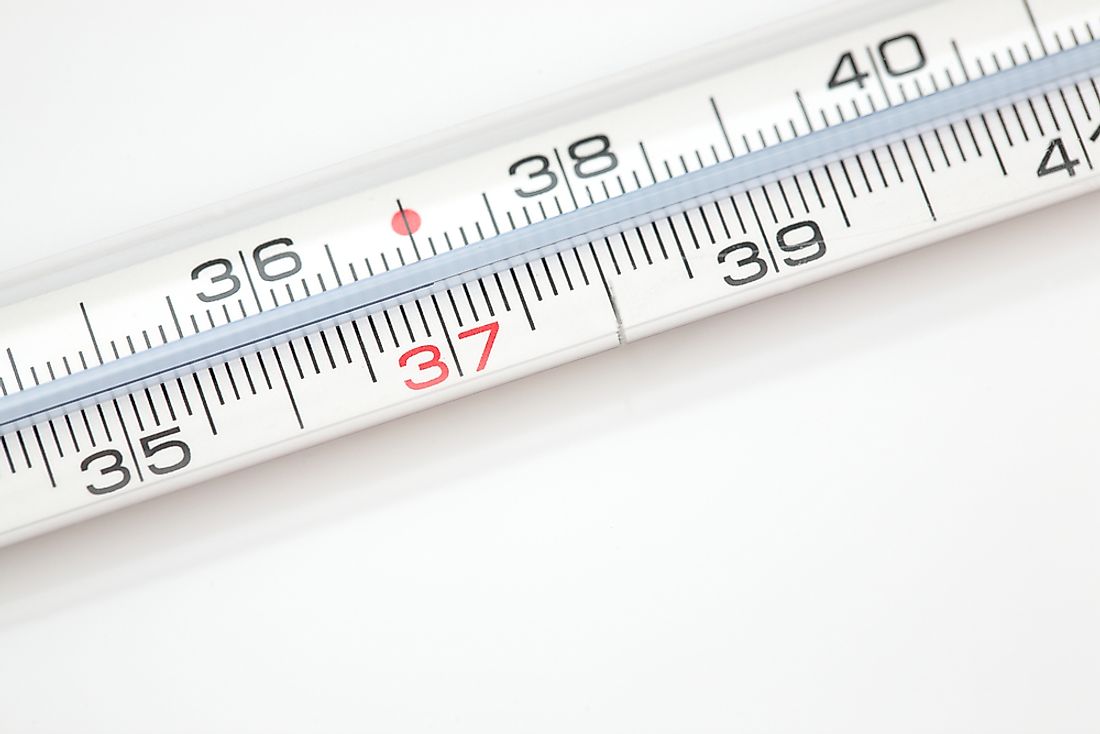What is Normal Body Temperature For Humans?

A human body’s normal temperature, also referred to as euthermia or normothermia, is typically within the range of 97.7 to 99.5 °F or 36.5 to 37.5 °C.
What Is The Need To Maintain A Normal Body Temperature?
The biochemical reactions keeping us alive and active occur only at optimum temperatures in our body. The enzymes and other proteins that are needed for all such reactions are also inactivated if our body temperature crosses a certain threshold limit, both on the higher and lower side. Thus, our body is programmed to maintain the temperature within a certain limit.
How Is The Human Body Temperature Measured?
A medical thermometer is an instrument that is used to measure the human body temperature. The thermometer can be used to take the temperature reading from various parts of the body like the mouth, ear, bladder, under the arm, and over the temporal artery on the forehead. However, the temperatures measured in these different parts of the body varies slightly from each other.
Oral temperatures are usually 0.4 °C lower than that measured in the rectum. Oral temperatures are also influenced by drinking, smoking, mouth breathing, eating, etc.
Skin based temperatures are more variable in nature as the body uses the skin to regulate the core body temperature. Thus, temperature measurements taken from the armpit, ears or other such areas correlate poorly with the core temperature of the body. External factors like the type of clothing and the weather also influence skin temperatures.
What Factors Influence The Human Body Temperature?
The normal human body temperature varies slightly throughout the day but is regarded to be outside the normal range if it varies enough to potentially have adverse clinical manifestations.
Variation In A Day
The body temperature varies among individuals due to the differences in lifestyle, environment, and physiology among human individuals. The normal human body temperature for an individual not only varies throughout the day but also varies from one day to another when the time is taken as constant. For a healthy person, the body temperature is usually lower in the early morning (lowest at around 4 am) and higher in the afternoon and evening (highest between 4:00 and 6:00 pm) as the activities increase in the latter half of the day. However, this is assuming that the person is active during the day and sleeps during the night). The difference in temperatures is about 0.5 °C between the highest and lowest points in a day. Sleep deprivation or sleeping for extended periods also influence body temperature.
Variation By Gender
The normal body temperature for humans also varies with gender. In females, the body temperature varies during the different phases of the menstrual cycle due to hormonal fluctuations and rises sharply after ovulation and that helps in fertility awareness.
Variation By Season
Seasonal and climatic variations also influence the normal human body temperature.
Variation By Age
With age, the normal body temperature for humans tends to decline. The elderly people have a lower ability to regulate their body temperature which increases their susceptibility to illnesses resulting from body temperature fluctuations.
Variation By Activities, Eating, Drinking, Clothing, etc.
Exercise raises the body temperature and so does drinking hot beverages or consuming hot food. Smoking also changes the oral temperature of the body. Consumption of high-calorie foods or drinks raises the normal body temperature. Wearing extra layers of clothing or warm clothing also increases the body temperature.
What Happens When Body Temperature Is Higher Or Lower Than The Normal Range?
When the body temperature of a human crosses the normal limit and is at or above 104 °F or 40 °C, it creates a life-threatening condition demanding immediate attention. The condition is called hyperthermia. Fever happens when the body temperature increases due to an alteration in the hypothalamus's setpoint. When the core temperature of the body decreases by about 1.8 to 3.6 °F or 1 to 2 °C, the condition is called hypothermia. A hypothermic state can be attained due to exposure to extremely cold environments.











